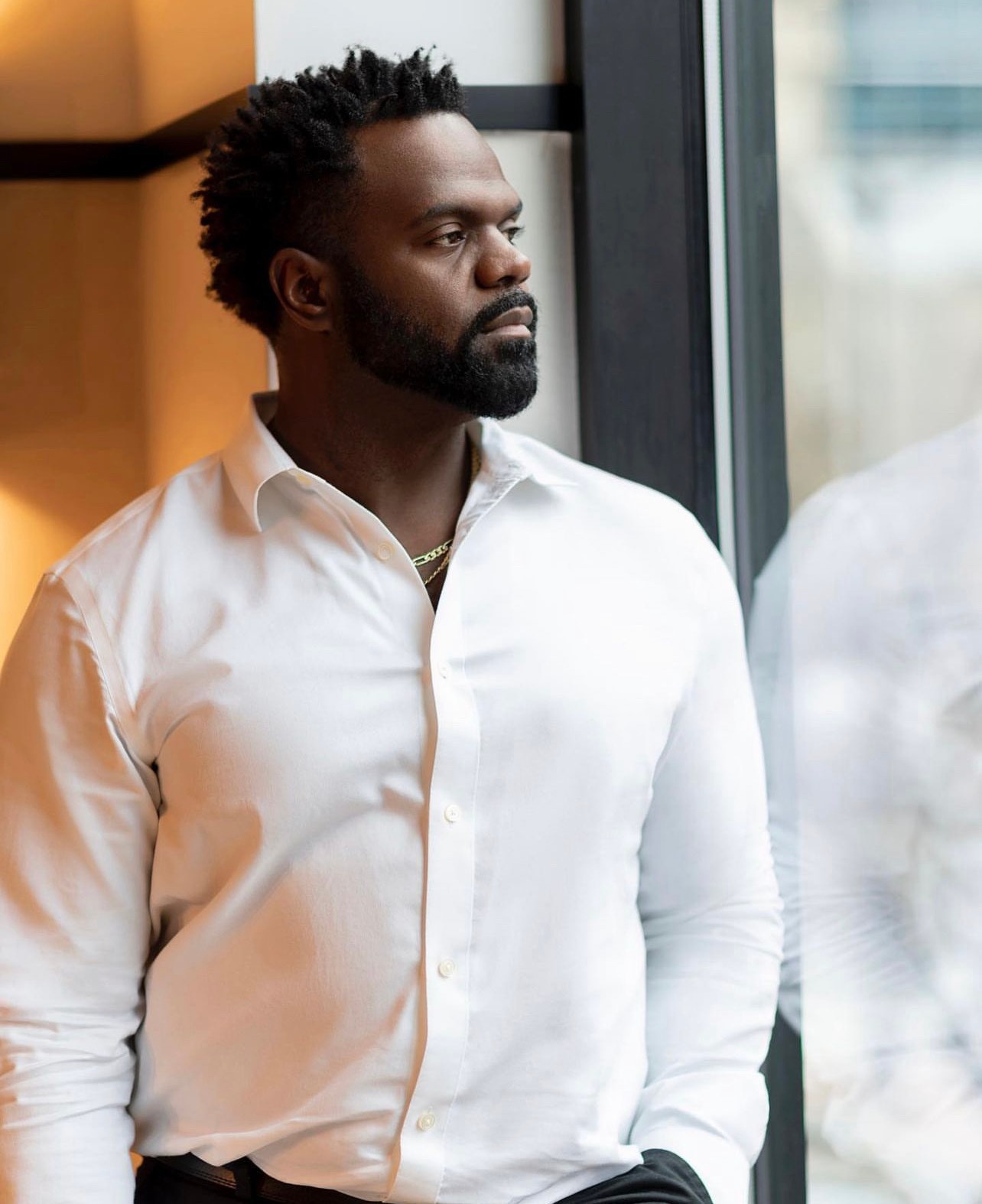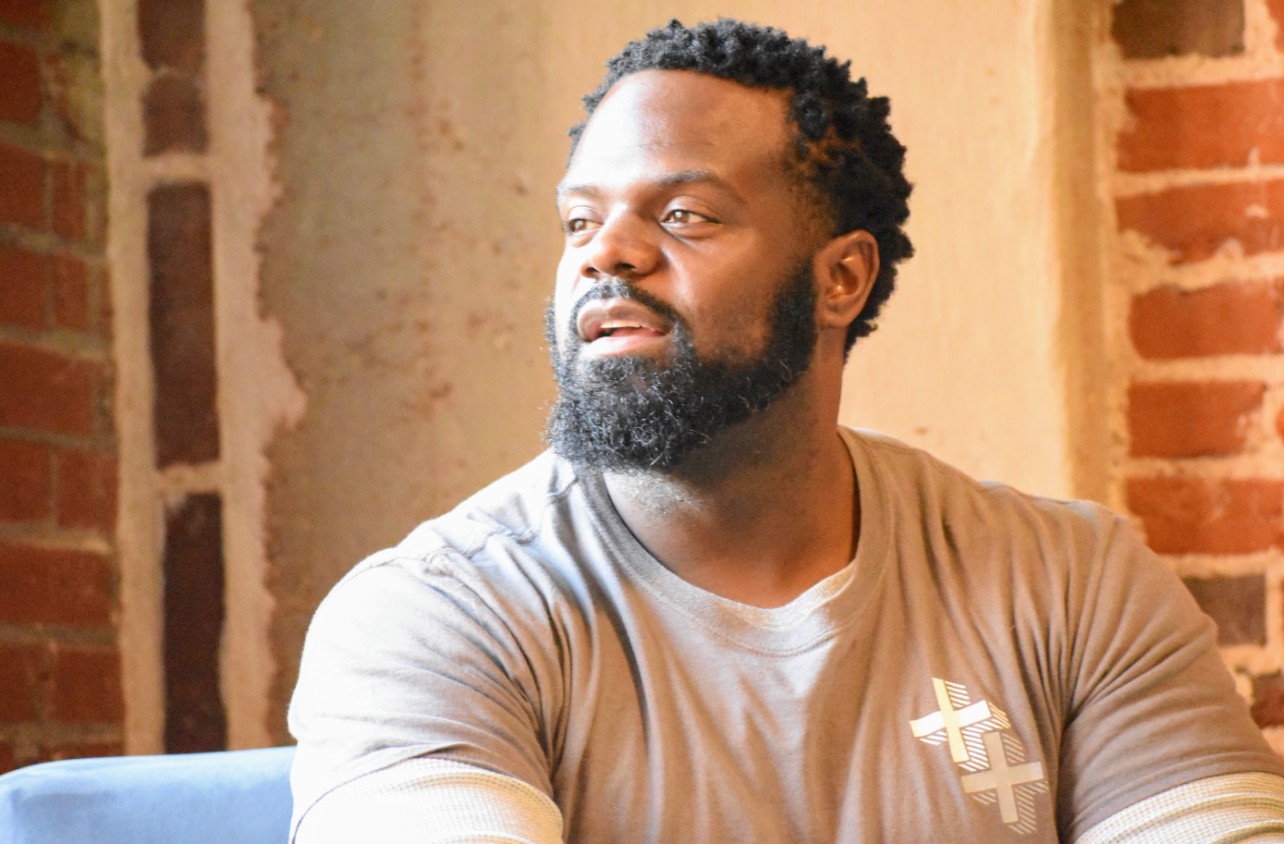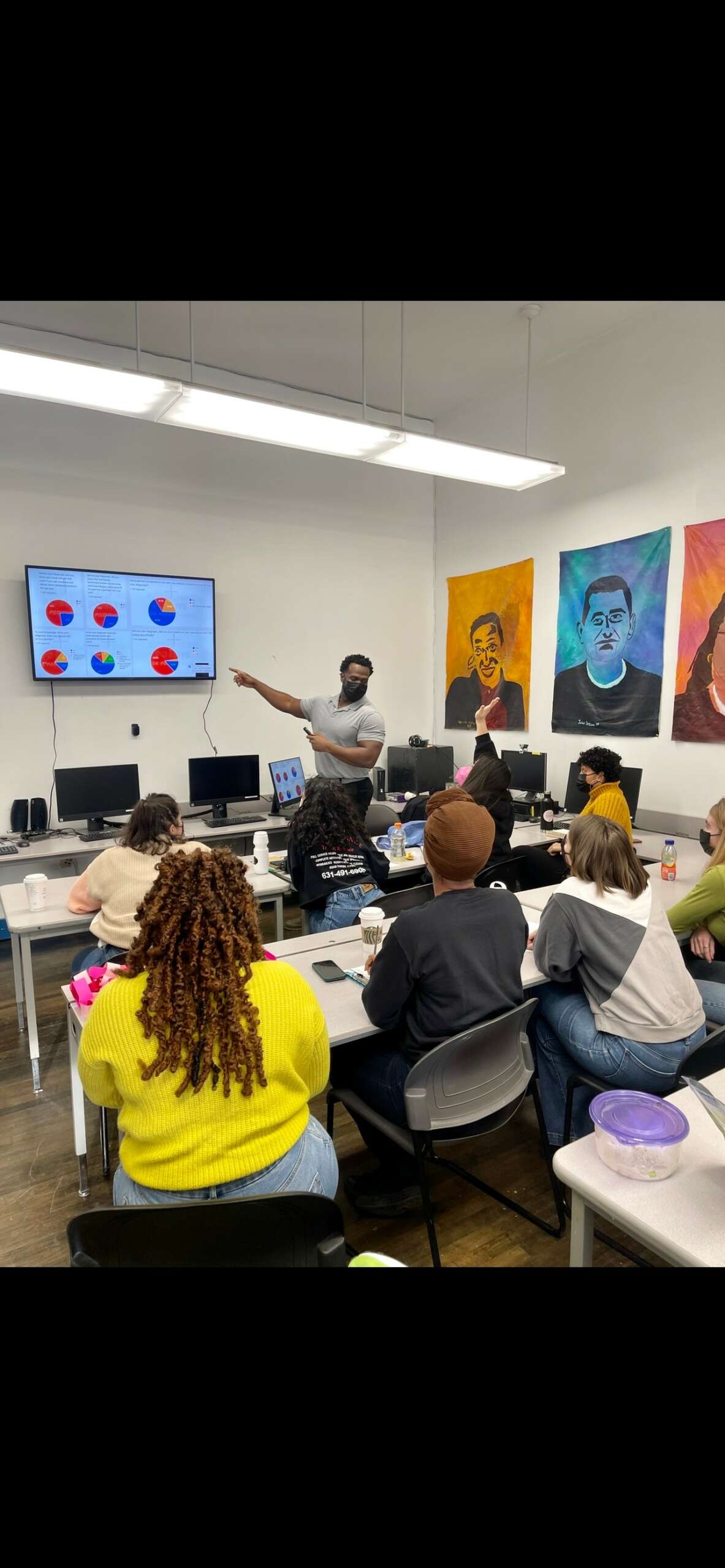Alright – so today we’ve got the honor of introducing you to Courtney Brame. We think you’ll enjoy our conversation, we’ve shared it below.
Courtney, thanks for joining us, excited to have you contributing your stories and insights. Can you open up about a risk you’ve taken – what it was like taking that risk, why you took the risk and how it turned out?
The biggest risk I’ve taken was saying yes to an interview by a local magazine publication about my secret project of interviewing people living with herpes about their experiences. It was more important that as someone living with herpes, I get the resource out there and visible for people to find if they need it than it was for me to remain the anonymous first name only podcast host of Something Positive for Positive People.
I was diagnosed with herpes in 2013 and learned after that there were support groups and communities that exist where people with this virus are struggling with stigma to the point of suicide ideation and other self-harm tendencies. When I saw this enough, I began to interview people on podcasts anonymously to let them share their stories for people to find and be able to connect with in hopes they’d at least have a roadmap for navigating the negative psychological effects of stigma vs wanting to end their lives.
After I started the podcast, I just shared it within herpes communities, but this magazine articles was the first instance of me being “found out” as the person doing this work. That risk led to becoming a non profit organization bringing stigma minimization practices into sex education and STD Prevention. Through Something Positive for Positive People, we’ve connected people navigating herpes stigma (and their partners/potential partners) to support resources. I teach Yoga to manage the stress and emotions of a herpes diagnosis for people with the virus. I have 1-1 support calls available for people with herpes. I maintain a few different support groups. I host a podcast interviewing people about their experiences with stigma, dating, relationships, etc. I educate health care providers on stigma-free communication with patients. I connect people to mental health resources . . . You know what, this is the first time I’m writing all this out. I realize I do a lot as a result of this haha.
But yeah in short, being open about my herpes diagnosis has at this point supported to my knowledge dozens of thousands of people per podcast downloads and website views and being on others’ podcasts as a guest. This was the best thing to ever happen to me because now I’m in an interesting transition of being able to run this organization full-time if the appropriate funding comes along and I can finally pay myself rather than keeping my part-time job(s) to keep managing the nonprofit’s programs. It’s tough because with stigma, people don’t tell others how helpful this resource is and keep it to themselves. I also can’t get volunteers because of that and people need money. But somehow with an average income of $20k a year working part-time, and some really amazing people who don’t charge me much for rent, some government assistance, I’m able to put those funds into the maintenance of the nonprofit to remain consistent.
Can I have a copy of this?

Courtney, love having you share your insights with us. Before we ask you more questions, maybe you can take a moment to introduce yourself to our readers who might have missed our earlier conversations?
Ohhhh I should’ve put some of that here instead of the previous box . . .
I support people living with herpes. In addition, I advocate for the integration of what I’m learning from the support I offer into sex education and STD Prevention. I teach Yoga for people with herpes, conduct research about their experiences and use that to train health care professionals on how to minimize stigma.
36% of people with herpes per our surveys since 2019 have expressed wanting to end their lives because of their diagnosis. I offer 1-1 support calls, Yoga classes, support groups, connection to mental health professionals, and a community of people finding healthy ways to navigate the complexities of stigma. There are a dozen social media accounts that destigmatize herpes, advocate for a cure, but I am the only non profit and I do a LOT of free things. I’m the only one prioritizing Yoga as a way of healing the emotional responses to this diagnosis. I’m the only person advocating for immediate action to support people through the symptoms of stigma like mental health action which can be achieved if our experiences are included into sex education and STD prevention.
I’m most proud of my consistency to be honest. I started conducting interviews with people who have herpes in 2017. I typically stay at a job 2 years then leave, but I feel like this is my purpose. It’s not what I WANT to do, but what I HAVE to do. Ya know? I define passion as what you WANT to do, purpose what you NEED to do, and this is a chaotic, lonely, hectic, challenging position to be in for sure, especially because I have to maintain like my regular person things like going to work to pay the bills which enable me to do this cluster of things under the umbrella of helping people struggling with herpes.
I want EVERYONE to know that life is about what happens THROUGH you, not TO you. That’s one of the core values I live by. I don’t think I really talk about the Yoga, so hi I teach Yin Yoga, I received my 500 hours of teacher training between 2020-2022 which essentially is the core of SPFPP and how I avoid burning out. I also want people to know I NEED funding. The quality of my work is as best it can be for just me running it. I make a LOT of mistakes with marketing materials, organization, I seem scattered online, but I’m with a person, I’m super present. That’s my saving grace. So if you reach out and I seem short via messages or text, it’s because we really should just get on the phone, into an event, or into a class. But yes, I need donations ya’ll. Funding preferably so we can keep expanding these services and have them readily available more frequently.

Can you talk to us about how your funded your firm or practice?
I had minimal startup costs. I needed internet, a phone, and a willing guest to talk to about their herpes experience. As long as I had internet access I could upload. I didn’t even know this was going to become a business. Who runs a business around herpes (unless you sell medication, right?).
I was a personal trainer when I started my podcast, and I worked remotely for an ad agency in the podcast/radio space. The money wasn’t as important as the safety I needed to be unafraid of colleagues’ responses to me having herpes like I thought I’d receive. While money wasn’t needed to START, there was money needed to continue and fix the problem I was seeing, which was that people struggling with herpes needed support.
I filed for 501c3 nonprofit status and started to use my podcast to accept donations to pay for people to get therapy. I had enough money to start a podcast channel, create a website, and from there I was able to access nonprofit resources that help me with marketing and engaging my audience. Adwords Adgrants, Canva, Zoom, there’s a LOT that if you’re creative enough, can be accessed with nonprofits.
There’s grant opportunities in the nonprofit sector, depending what you’re seeking. There hasn’t been anything over the last 7 years specific to funding for anything herpes related that isn’t science. I’ve tried squeezing into HIV/STD Prevention and mental health but ain’t nobody worried about herpes, except those struggling with it, so it’s been donations that keep us running from people who have herpes.
Any stories or insights that might help us understand how you’ve built such a strong reputation?
Sharing my own status openly with the privilege I have to not have to care what people think of me. My income isn’t impacted by my work, nor is my state of mind around colleagues in let’s say an office setting. It’s just me and those who come across my content. So with that said, the vulnerability and willingness to be seen and connected to by people struggling with the same issues. I’m relatable, and while most people are in a desperate state of needing information when they reach out and then they leave, there’s a few folks who stick around and validate my existence as valuable in this space. Also consistency. I see people come and go so often. They offer support and then just…. disappear. I’ll be here until I’m no longer needed, not when I no longer need this.
Contact Info:
- Website: www.spfpp.org
- Instagram: www.instagram.com/CourtneyBrame_
- Facebook: https://www.facebook.com/profile.php?id=100086407403557
- Linkedin: https://www.linkedin.com/in/courtneybrame/
- Youtube: https://www.youtube.com/channel/UCdoKW6cERzW0-5hZaaH0NdQ
Image Credits
So – People don’t want to be on video when I’m working. The podcast is audio only and anonymous and usually virtual. In person events, to protect people from being “outed” for having herpes makes it challenging for me to generate any marketing materials, photos, etc. . . . another one of those challenges I have to navigate. The one with the back of the educators’ heads is the best I have. Everything else is just . . . . me.


